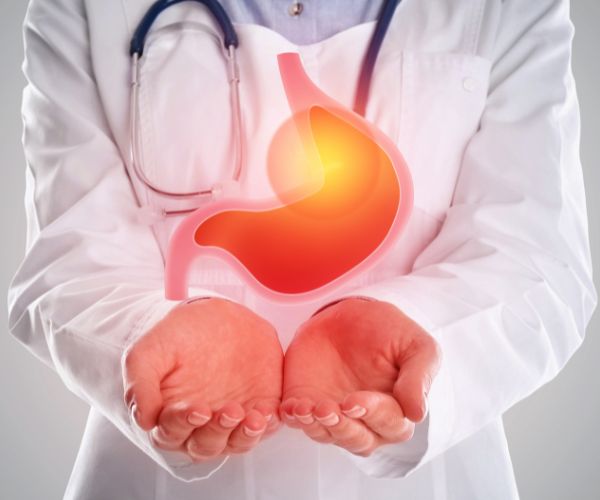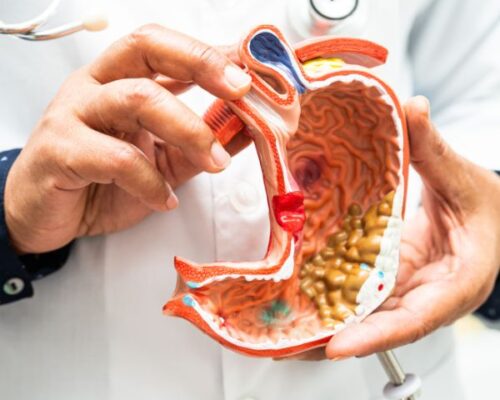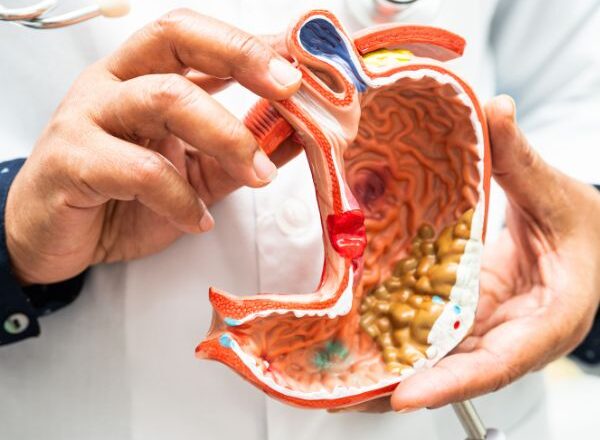Know the signs: Understanding gastrointestinal symptoms for better health
Digestive issues could disrupt life. Learn the symptoms, causes, and solutions to regain control of your well-being.
Know the signs: Understanding gastrointestinal symptoms for better health
Digestive issues could disrupt life. Learn the symptoms, causes, and solutions to regain control of your well-being.

Understand gastrointestinal symptoms
Gut health issues affect millions, with over one-third of Australians experiencing chronic or recurring gut health issues, and half requiring medical care. Recognising signs like bloating, pain, or irregular bowel movements is crucial. Early diagnosis and treatment may prevent complications and improve well-being and long-term health.
Keep reading to find out more about common symptoms of digestive issues and steps to take better care of your gut health.
Understand gastrointestinal symptoms
Gut health issues affect millions, with over one-third of Australians experiencing chronic or recurring gut health issues, and half requiring medical care. Recognising signs like bloating, pain, or irregular bowel movements is crucial. Early diagnosis and treatment may prevent complications and improve well-being and long-term health.
Keep reading to find out more about common symptoms of digestive issues and steps to take better care of your gut health.

Common signs and what they could mean
Understanding gastrointestinal symptoms begins with recognising the signs your body provides. From abdominal discomfort to changes in bowel habits, these symptoms may signal potential underlying issues that need attention.
- Key symptoms to note : Key symptoms include abdominal discomfort (bloating or cramping), changes in bowel movements (diarrhoea or constipation), persistent nausea, excessive gas, or unexplained fatigue, which may indicate digestive health issues.
- Potential contributing factors : Potential contributing factors to gastrointestinal symptoms include low fibre intake, dehydration, stress affecting digestion, and chronic conditions like IBS or food intolerances, which may disrupt gut health and digestion.
- Is tracking symptoms crucial? : Monitoring patterns or food triggers helps uncover causes and supports healthcare providers in offering accurate diagnoses. Tracking also empowers individuals to take proactive steps toward improving digestive health.
Recognising and addressing these common signs of possible gut-related illnesses early may make a difference in managing your overall gastrointestinal health effectively. Small changes to daily habits often foster long-term health.

Common signs and what they could mean
Understanding gastrointestinal symptoms begins with recognising the signs your body provides. From abdominal discomfort to changes in bowel habits, these symptoms may signal potential underlying issues that need attention.
- Key symptoms to note : Key symptoms include abdominal discomfort (bloating or cramping), changes in bowel movements (diarrhoea or constipation), persistent nausea, excessive gas, or unexplained fatigue, which may indicate digestive health issues.
- Potential contributing factors : Potential contributing factors to gastrointestinal symptoms include low fibre intake, dehydration, stress affecting digestion, and chronic conditions like IBS or food intolerances, which may disrupt gut health and digestion.
- Is tracking symptoms crucial? : Monitoring patterns or food triggers helps uncover causes and supports healthcare providers in offering accurate diagnoses. Tracking also empowers individuals to take proactive steps toward improving digestive health.
Recognising and addressing these common signs of possible gut-related illnesses early may make a difference in managing your overall gastrointestinal health effectively. Small changes to daily habits often foster long-term health.


Key digestive disorders and their symptoms
Gastrointestinal conditions may have overlapping symptoms, but understanding their unique characteristics is key to recognising when to seek help.
- Gastrointestinal conditions to be aware of : Irritable bowel syndrome (IBS) causes abdominal pain, bloating, and altered bowel habits. Crohn’s disease results in inflammation, diarrhoea, and malnutrition. Gastroesophageal reflux disease (GORD) leads to acid reflux, heartburn, and oesophagus damage.
- Symptom variations across conditions : Conditions like IBS often feature fluctuating symptoms, while Crohn’s disease tends to cause persistent and severe health issues, sometimes requiring long-term management. GORD symptoms may vary, from mild heartburn to more severe oesophageal damage.
- Recognising red flags for serious issues : Certain symptoms could indicate more serious conditions, such as blood in stool, unexplained weight loss, prolonged vomiting, or severe abdominal pain disrupting daily activities. These signs require medical attention for proper diagnosis and treatment.
Early detection and understanding of these disorders may allow for timely intervention, improving long-term outcomes and quality of life.
Key digestive disorders and their symptoms
Gastrointestinal conditions may have overlapping symptoms, but understanding their unique characteristics is key to recognising when to seek help.
- Gastrointestinal conditions to be aware of : Irritable bowel syndrome (IBS) causes abdominal pain, bloating, and altered bowel habits. Crohn’s disease results in inflammation, diarrhoea, and malnutrition. Gastroesophageal reflux disease (GORD) leads to acid reflux, heartburn, and oesophagus damage.
- Symptom variations across conditions : Conditions like IBS often feature fluctuating symptoms, while Crohn’s disease tends to cause persistent and severe health issues, sometimes requiring long-term management. GORD symptoms may vary, from mild heartburn to more severe oesophageal damage.
- Recognising red flags for serious issues : Certain symptoms could indicate more serious conditions, such as blood in stool, unexplained weight loss, prolonged vomiting, or severe abdominal pain disrupting daily activities. These signs require medical attention for proper diagnosis and treatment.
Early detection and understanding of these disorders may allow for timely intervention, improving long-term outcomes and quality of life.

Steps to improve digestive health
Good digestive health is achievable through simple lifestyle changes. Diet, exercise, and stress management all play a vital role in supporting a healthy gut.
- Focus on food intake : Incorporate fibre-rich foods like fruits, vegetables, and whole grains to support digestion. Fibre aids in the movement of food through the digestive system, preventing issues such as constipation. Staying hydrated also plays a role in digestion, helping to maintain smooth bowel movements.
- Adopt an active lifestyle : Regular exercise, such as walking or yoga, promotes healthy digestion by improving gut function and reducing stress. Physical activity stimulates the digestive system and enhances nutrient absorption. Incorporating these activities into your daily routine may contribute to better overall gut health.
- Manage stress effectively : Mindfulness practices like meditation or deep breathing may help reduce stress. Managing stress effectively may help in maintaining a healthy gut by regulating digestive processes. Consistent meal timings can also support natural digestion rhythms, ensuring your body processes food efficiently.
Small, sustainable changes to daily habits may contribute to enhancing your overall digestive health and prevent potential complications in wellbeing long-term.

Steps to improve digestive health
Good digestive health is achievable through simple lifestyle changes. Diet, exercise, and stress management all play a vital role in supporting a healthy gut.
- Focus on food intake : Incorporate fibre-rich foods like fruits, vegetables, and whole grains to support digestion. Fibre aids in the movement of food through the digestive system, preventing issues such as constipation. Staying hydrated also plays a role in digestion, helping to maintain smooth bowel movements.
- Adopt an active lifestyle : Regular exercise, such as walking or yoga, promotes healthy digestion by improving gut function and reducing stress. Physical activity stimulates the digestive system and enhances nutrient absorption. Incorporating these activities into your daily routine may contribute to better overall gut health.
- Manage stress effectively : Mindfulness practices like meditation or deep breathing may help reduce stress. Managing stress effectively may help in maintaining a healthy gut by regulating digestive processes. Consistent meal timings can also support natural digestion rhythms, ensuring your body processes food efficiently.
Small, sustainable changes to daily habits may contribute to enhancing your overall digestive health and prevent potential complications in wellbeing long-term.

Start your journey to better gut health
Gastrointestinal health is an important cornerstone of your overall well-being. Don’t ignore persistent symptoms. A healthcare provider could diagnose and address any concerns, helping you navigate potential gastrointestinal conditions effectively.
Take charge of your gut health today by scheduling an appointment with a trusted gastroenterologist. It’s the first step toward feeling your best and living with ease.

Start your journey to better gut health
Gastrointestinal health is an important cornerstone of your overall well-being. Don’t ignore persistent symptoms. A healthcare provider could diagnose and address any concerns, helping you navigate potential gastrointestinal conditions effectively.
Take charge of your gut health today by scheduling an appointment with a trusted gastroenterologist. It’s the first step toward feeling your best and living with ease.

FAQs
What foods commonly trigger digestive issues?
Certain foods like spicy dishes, fatty meals, dairy products, and caffeinated beverages are common culprits. Maintaining a food diary usually helps pinpoint individual triggers.
How could I differentiate between occasional discomfort and a serious problem?
Occasional gut health symptoms often resolve quickly and are mild. Chronic, severe, or worsening symptoms require professional evaluation to rule out serious conditions.
Are probiotics effective for improving digestion?
Probiotics may balance gut bacteria and alleviate symptoms for some people. However, their effectiveness depends on the individual and specific gastrointestinal conditions. Always consult a healthcare provider.
What tests are commonly used to diagnose gastrointestinal issues?
Healthcare providers may recommend blood tests, stool analysis, or imaging techniques such as endoscopy or colonoscopy to identify underlying issues.
